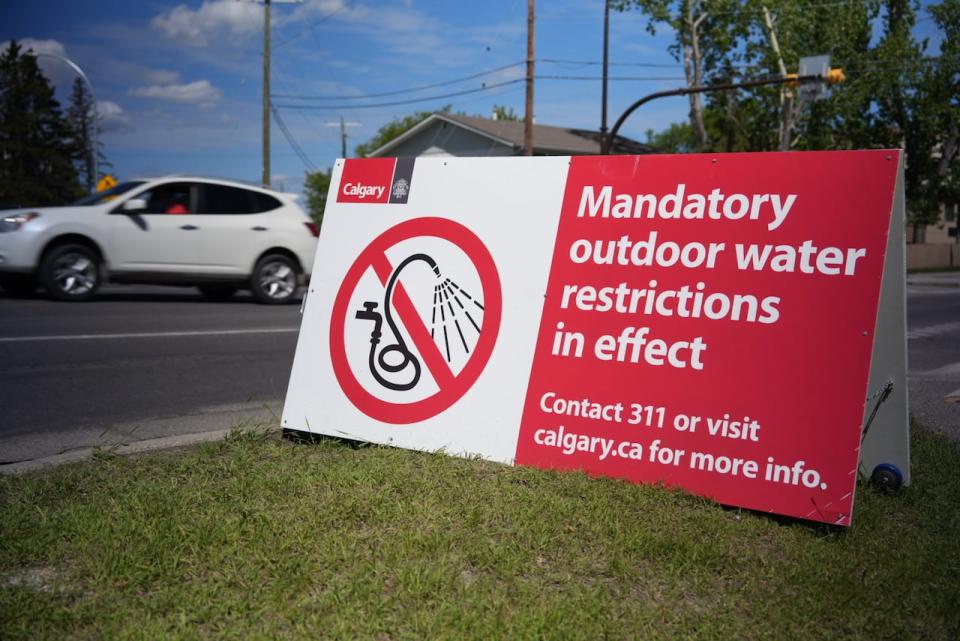Calgary can now allow access to river water for businesses
A plan to get untreated water to industrial customers is in the works while restrictions and conservation efforts — triggered by a massive water main break in northwest Calgary — continue for the city's potable water.
The provincial government issued two temporary diversion licences to the City of Calgary on Tuesday. This allows 200,000 cubic metres (200 million litres) for non-potable industrial use, with diversion points out of the Bow River.
It means the city can track and manage water withdrawals and access from the river for the duration of those permits.
Speaking to council on Tuesday, Nancy Mackay, the city's director of water services, said there are good reasons to explore the option of non-potable water distribution.
She said more details about the plan will roll out over the next 24 hours.
"This will enable Calgarians access to river water for activities that we know are important for those customers, such as dust suppression, compaction, site equipment cleaning and commercial landscaping," Mackay said.
"We are currently working through the logistics to get water from the river for construction and our industry partners."
Non-potable water is typically used by the city for services like watering golf courses and trees.
A full repair of the Bearspaw south water main — a feeder pipe that provides roughly 60 per cent of the city's treated water supply — is still weeks away. Officials have been asking Calgarians to reduce their usage by 25 per cent since the main failed on June 5.
Restrictions and conservation efforts are expected to remain in place for three to five weeks while work to fix the water main continues.

It is illegal to take water from the rivers in Calgary for industrial use unless a specific permit from the Alberta government is obtained.
According to the government, that will now be under the guise of the City of Calgary — for now, at least.
"This temporary diversion of non-potable water will help reduce pressure on the potable water system that is stressed due to the line break," said Ryan Fornier, the press secretary for the minister of Environment and Protected Areas of Alberta, in a statement to CBC News.
"But [it] is up to the City of Calgary to track and manage water withdrawals and access."
Businesses and industrial users typically need a water licence or permit issued by Alberta Environment and Parks to withdraw water for that purpose.
Those licences specify the amount of water that can be drawn and the purpose for which it can be used.
According to Calgary Mayor Jyoti Gondek, businesses make up about 35 per cent of the total water demand, and residents make up the other two-thirds.
On Monday, she said the city had been in touch with more than 700 commercial users to ask them to lower their water consumption.
Unlike industrial or commercial users, individuals are allowed to take water from the river for household or domestic purposes and for traditional agriculture use without a permit, according to Alberta's Water Act.
City officials, however, are discouraging people from doing that, citing health and safety concerns.
"Please capture rainwater instead," said Coby Duerr, deputy chief of the Calgary Emergency Management Agency during a Tuesday update.
"I want to reaffirm that this water is not safe to drink or consume. Alberta Health Services provides more details on using non-potable or rainwater safely on their website."
On Monday, city residents and businesses used 420 million litres of the city's supply. That number is 60 million litres below the safety threshold.

 Yahoo News
Yahoo News 
